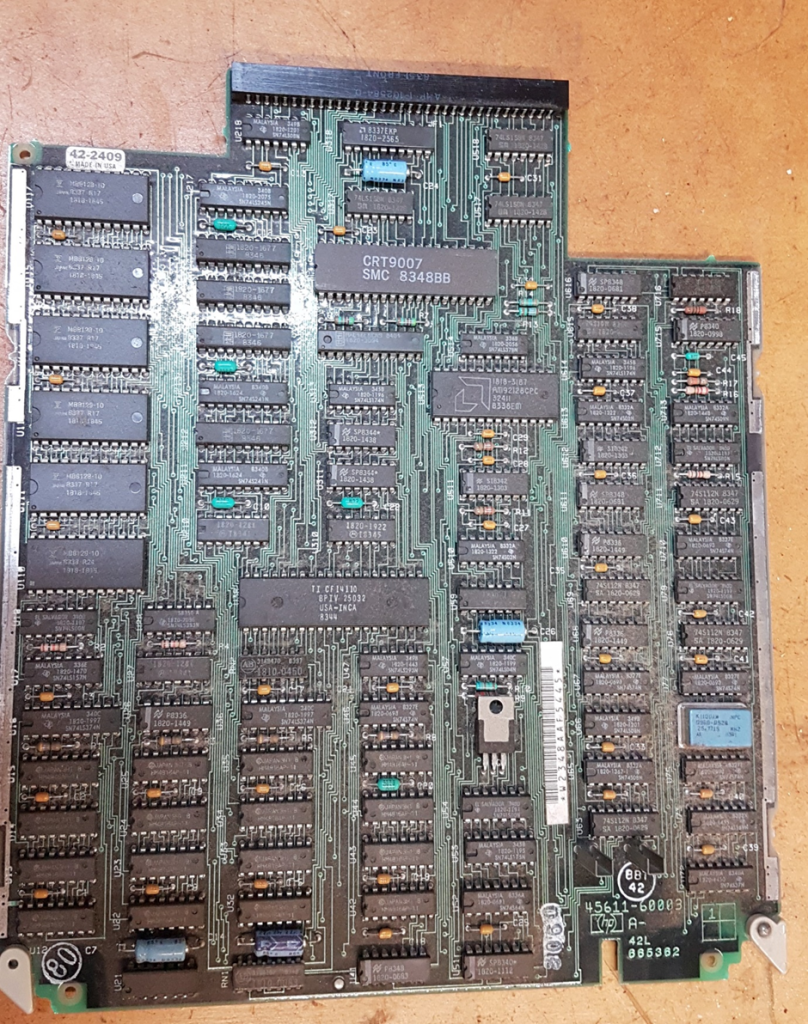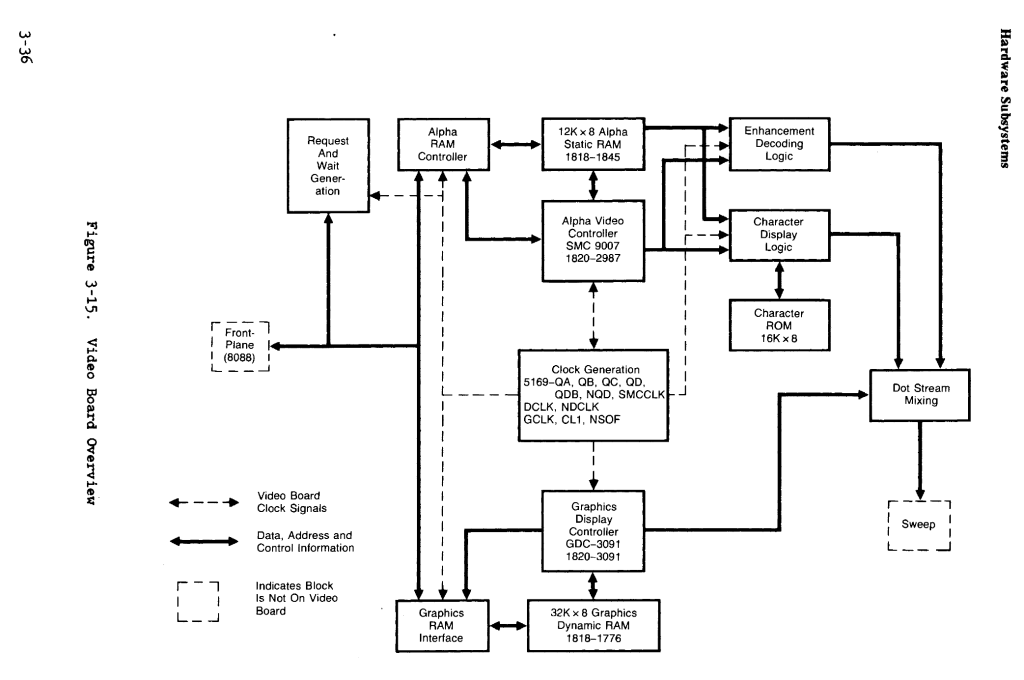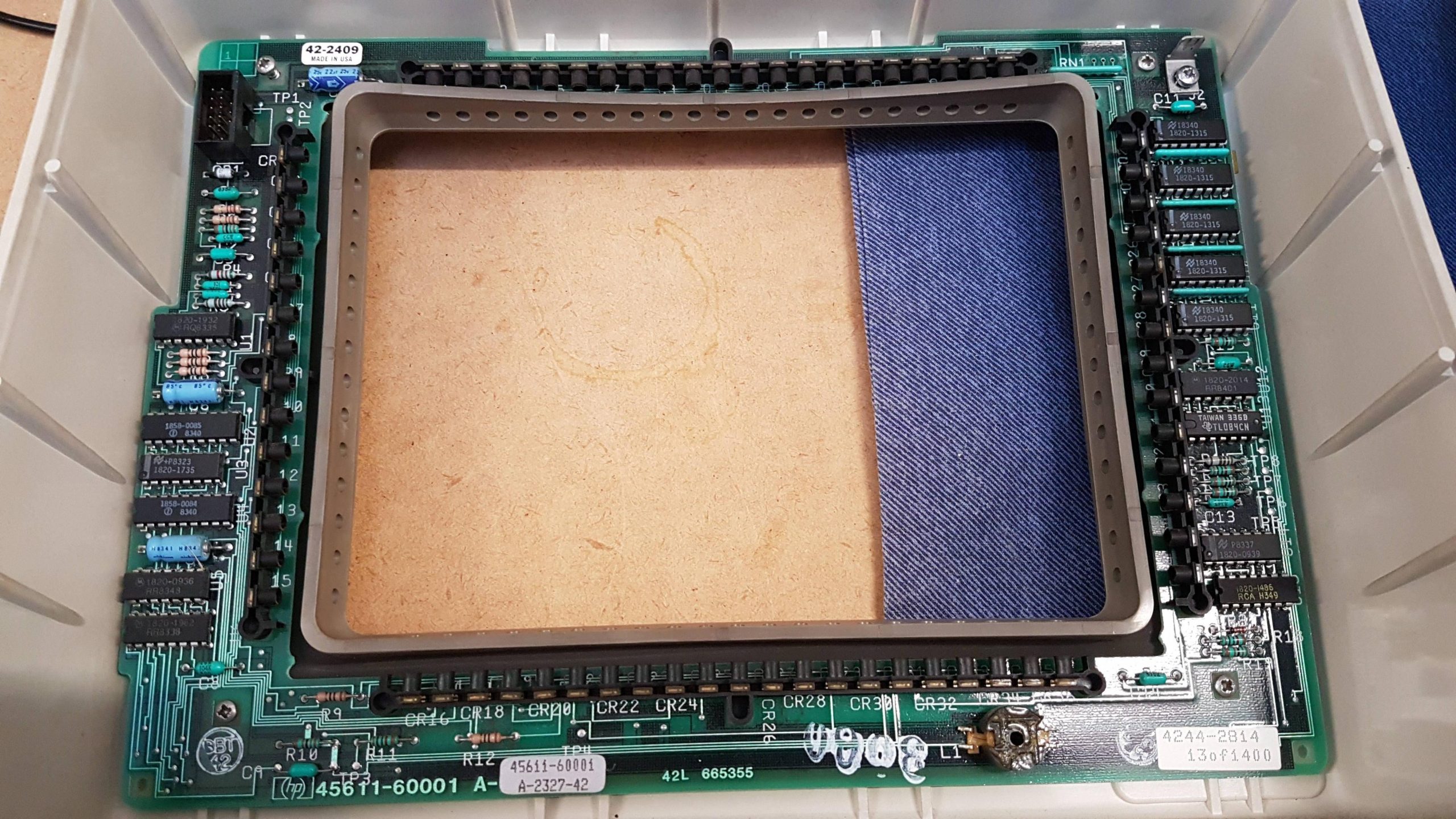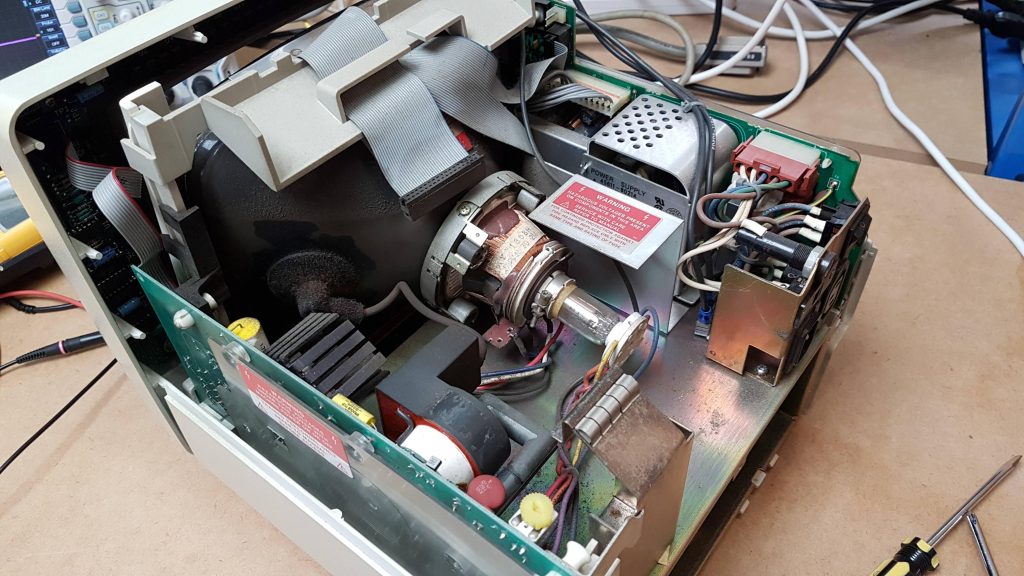This machine had been powered up recently, so a felt ok about switching it on. The power on self test had given an error code: 1040. I had grabbed the service manual and looked up this code before i purchased.
The Service Manual has info on interpreting the code and on the LED readout visible through the back panel.

1000 means keyboard or touchscreen problems.
0040 means a graphics RAM problem.
It took a couple of power cycles to get the error codes from the LEDs at the back of the unit. Each error has four nibbles that are shown one at a time.
The LEDs gave the following:
- EC40: GRAM Travelling test failed
- E840: GRAM Marching test failed
- 9120: Keyboard did not identify as being present.
Clearly, there were two quite separate problems. There were no batteries, so I expected 0001 error – but didn’t get it.
The Graphics RAM tests look like they have 512 slots. It has 512 horizontal resolution. 390 vertical. Curious number. The number might be a column or a row. (Other clues point to a column.)
The graphics card pulls out fairly easily from the “front plane”. As is often the case with card cages, it is almost impossible to instrument the card without an extender – which i don’t have.



The manual doesn’t go down to the chip level, but the error code looked like it might. Probably an error bit for each of the 8 bits of GRAM and 1 bit for the bank. That made it the 6th bit of bank 0.
I could see two bad vertical lines on the screen – one was flickering, and the other was solid. They were repeated across the screen. I wired up quite a wide ribbon with alternating signal and ground to bring the RAM outputs to a scope so I could check with the board in place. I found two lines that were different from the others – bit 6 on both banks.
I cut out the first RAM and replaced with a socket and 6164 DRAM. The 16k DRAMs are compatible with 6164 64kb DRAM. The error codes changed on the 9th bit – the second bank failure. I repeated the exercise and the GRAM errors were cleared.
The manual said that part of the GRAM was used for variables, so I was hopeful that clearing the fault might allow the machine to the boot stage. And it did. I had some work to do on the drives before i could try to boot.
By this stage, the keyboard error had magically cleared. It did re-occur some years later, but i think it was due to a corruption of the configuration data, either due to a program crash or a power cycle. The computer automatically reloaded the defaults after the self test.
The main processor board is fairly easy to remove from the “front plane”. It has a mezzanine RAM card RAM with 256k of memory.


Touch panel:

CRT, chassis, and power supply:

I didn’t see anything that particularly worried me.